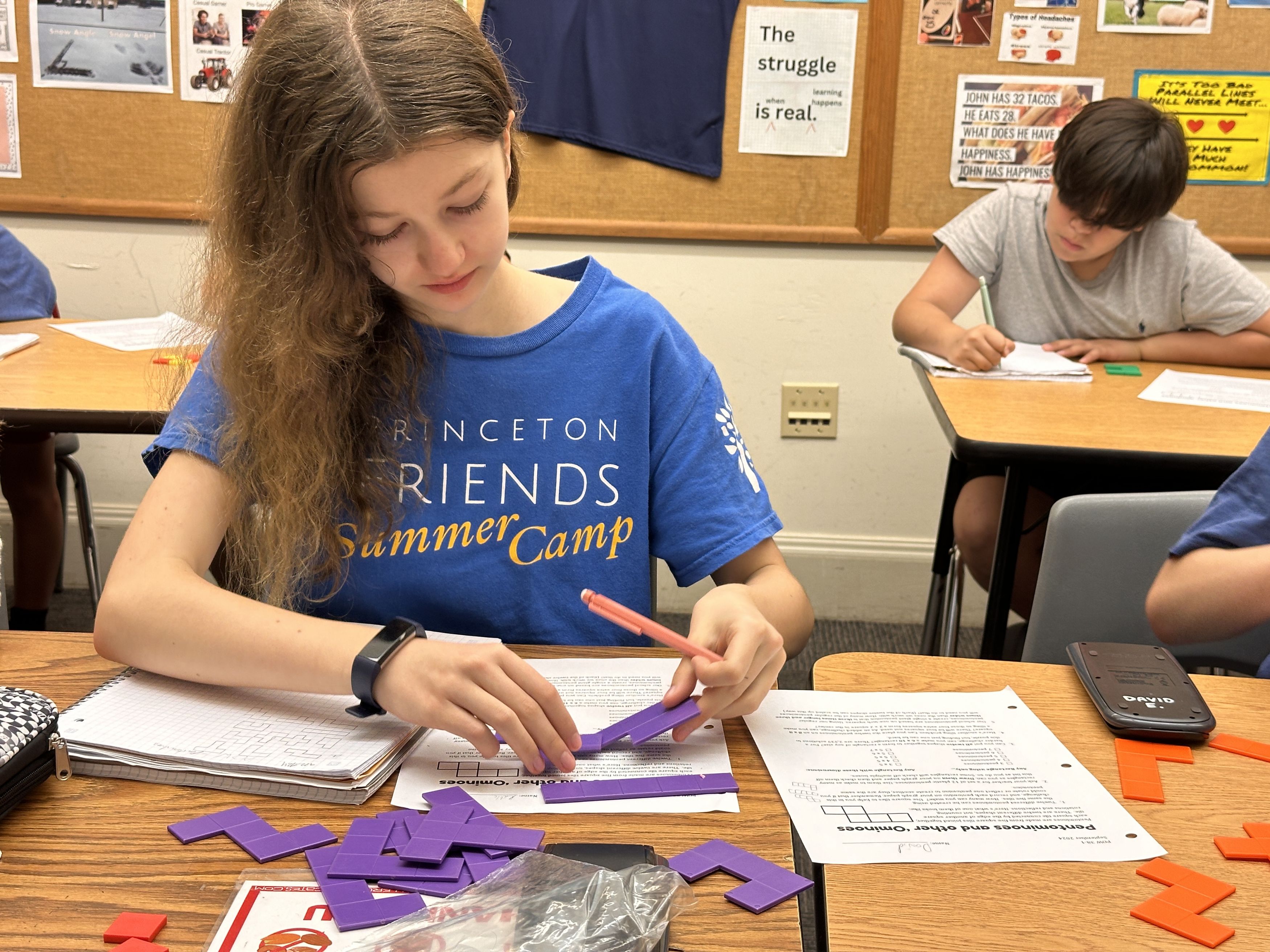Pre-K & Kindergarten Elementary | Grades 1 & 2 Elementary | Grades 3-5 Middle School | Grades 6-8 Learning Support Program Beyond PFS
CURRICULUM
The Princeton Friends School curriculum reflects our school’s deeply held commitment to honoring individual voice and engaging every mind. It speaks to an emerging consensus among educational theorists that in today’s world, successful schools graduate students with a host of intellectual and personal capabilities.
As part of every child’s experience at Princeton Friends School, there is dedicated and compassionate faculty and staff, working to teach and instill in students the following:
- a strong and positive sense of who they are as learners and as social beings;
- a deep understanding of and competence within the traditional academic disciplines;
- skills in abstract critical thinking and synthesizing ideas across disciplines;
- creativity and innovative thinking;
- the ability to communicate effectively and persuasively;
- the ability and inclination to collaborate and to contribute to the broader community;
- a global understanding, appreciation, and perspective;
- comfort with and commitment to ongoing learning;
- a clear ethical sense informed by Quaker values and testimonies.


